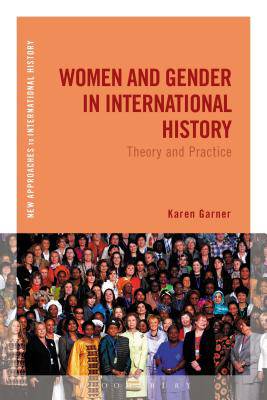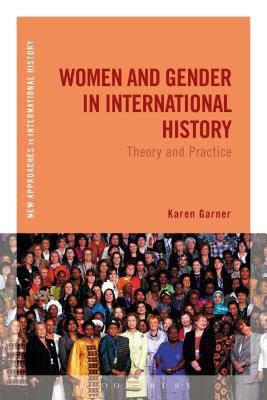
- Afhalen na 1 uur in een winkel met voorraad
- Gratis thuislevering in België vanaf € 30
- Ruim aanbod met 7 miljoen producten
- Afhalen na 1 uur in een winkel met voorraad
- Gratis thuislevering in België vanaf € 30
- Ruim aanbod met 7 miljoen producten
Zoeken
€ 64,45
+ 128 punten
Uitvoering
Omschrijving
Most governments and global political organizations have been dominated by male leaders and structures that institutionalize male privilege. As Women and Gender in International History reveals, however, women have participated in and influenced the traditional concerns of international history even as they have expanded those concerns in new directions.
Karen Garner provides a timely synthesis of key scholarship and establishes the influential roles that women and gender power relations have wielded in determining the course of international history. From the early-20th century onward, women have participated in state-to-state relations and decisions about when to pursue diplomacy or when to go to war to settle international conflicts. Particular women, as well as masculine and feminine gender role constructs, have also influenced the establishment and evolution of intergovernmental organizations and their political, social and economic policy making regimes and agencies. Additionally, feminists have critiqued male-dominated diplomatic establishment and intergovernmental organizations and have proposed alternative theories and practices. This text integrates women, and gender and feminist analyses, into the study of international history in order to produce a broader understanding of processes of international change during the 20th and 21st centuries.Specificaties
Betrokkenen
- Auteur(s):
- Uitgeverij:
Inhoud
- Aantal bladzijden:
- 296
- Taal:
- Engels
- Reeks:
Eigenschappen
- Productcode (EAN):
- 9781472576118
- Verschijningsdatum:
- 28/06/2018
- Uitvoering:
- Paperback
- Formaat:
- Trade paperback (VS)
- Afmetingen:
- 155 mm x 231 mm
- Gewicht:
- 453 g

Alleen bij Standaard Boekhandel
+ 128 punten op je klantenkaart van Standaard Boekhandel
Beoordelingen
We publiceren alleen reviews die voldoen aan de voorwaarden voor reviews. Bekijk onze voorwaarden voor reviews.







